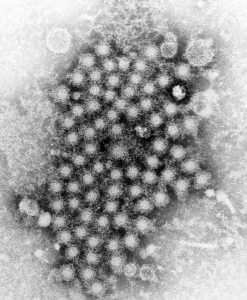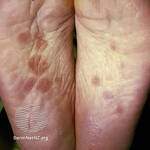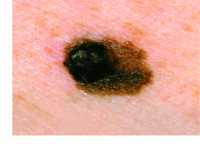Hair Straightening Chemicals May Increase Uterine Cancer Risk
UCLA Study Finds Kids Attending Higher Performing Charter Schools Had Lower Alcohol and Marijuana Use
Study Finds Reduced Kidney Disease Progression with DOACs vs Vitamin K Antagonists
NEJM: Trial of IVIG for Autoimmune Disorder Dermatomyositis
Hepatitis C: Few Insured Persons Receive Timely Treatment, and Disparities Exist
USPSTF Recommends Syphilis Screening for Those at Risk
Non-Clinical Medical Careers are Soaring: Here is What You Need to Know
Healthcare is one of the largest industries in the country, and it is also outpacing other industries in terms of...
Myths About Teenager Sleep Needs Are Common
3 Things You Should Know When Caring for Your Elderly Relatives
It is incredibly important that you learn how to communicate and understand the loved ones that you are looking to...
Covid: Safety Net Hospitals Experienced Greater Financial Losses During Pandemic
Allison Witman PhD Assistant Professor of Economics Economics & Finance Cameron School of Business University of North Carolina, Wilmington
Yu Wang PhD Assistant Professor Congdon School of Supply Chain, Business Analytics, & Information Systems Cameron School of Business University of North Carolina Wilmington David Cho PhD Assistant Professor of Management California State University, Fullerton
MedicalResearch.com: What is the background for this study? Response: The COVID-19 pandemic placed tremendous financial pressure on hospitals. Beginning in March of 2020, hospitals cancelled outpatient and elective procedures to accommodate surges in demand from COVID-19 patients. As these procedures account for more than 60% of an average hospital’s revenue, cancellation posed serious challenges to the financial health of hospitals. Revenue from COVID-19 patients may have partially offset these effects, but the American Hospital Association estimated a total loss of $202.6 billion by American hospitals between March and June 2020. In response, the U.S. government created large federal assistance programs aimed to stabilize hospitals’ financial situation as their ability to maintain operations was critical to the health of the nation. Due to differences in hospital characteristics, certain hospitals such as rural hospitals and those serving a higher share of Medicaid and uninsured patients (e.g., safety net hospitals) may have been more financially susceptible to the effects of the pandemic. These hospitals that serve vulnerable patient populations historically have had lower profit margins and were candidates for targeted COVID relief funding (e.g., Safety Net Hospitals Payments, a $10 billion component of the Provider Relief Fund). (more…)Night Owls May Have Increased Risk of Obesity, Diabetes and Heart Disease
Frailty Scores in Elderly Unaffected by Supplemental Omega-3 or Vitamin D
Hospital-Treated Infections And Risk of Later Life Neurodegenerative Diseases
Melanoma: Tel-Aviv University Study Finds Blocking Two Key Proteins May Block Brain Metastases
USPSTF: Assesses Benefits and Harms of Screening for Prediabetes and Type 2 Diabetes in Children and Adolescents
BIOGEN: Trial of Anti-BDCA2 Antibody Litifilimab for Systemic Lupus Erythematosus
Harvard Study Evaluates Vitamin D and Omega-3 Supplementation on Frailty Prevention
Does Pollen Cause Your Asthma Here’s How To Handle It
Knowing about pollen forecasts might help you understand how much pollen will be released in your area and when....
Older Adults with Cognitive Issues Are Susceptible to Large Financial Losses
CELEB Trial: Surgical vs Bronchoscopic Lung Volume Reduction
Early Onset Cancers Rising Worldwide, Especially of GI Tract
The rising incidence of early-onset cancers is likely at least partly attributable to enhanced screening and early detection. However, there...





























